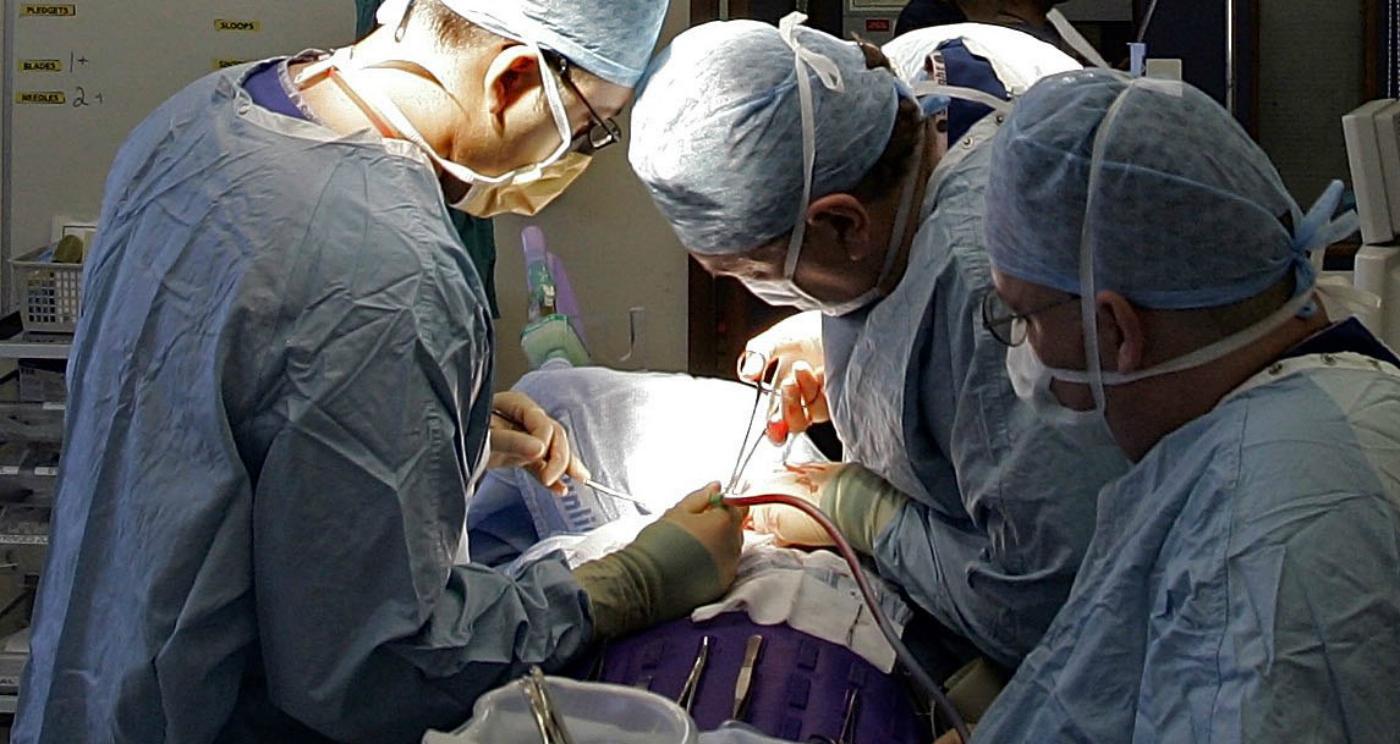Body parts and organs stockpiled by NHS waste contractor
Limbs, organs and hazardous substances held ‘in their hundreds of tonnes’ by Healthcare Environment Services

A free daily email with the biggest news stories of the day – and the best features from TheWeek.com
You are now subscribed
Your newsletter sign-up was successful
Tonnes of medical waste including human organs, body parts and dangerous medical chemicals have been “stockpiled” by one of the NHS’s biggest disposal contractors, leaked documents have revealed.
Memos to and from NHS England obtained by the Health Service Journal (HSJ) show that private contractor Healthcare Environment Services (HES) - which has contracts with up to 50 NHS trusts - has “allowed amputated limbs, infectious liquids, refuse linked to cancer treatment and other hazardous materials to build up at its five waste handling sites”, The Daily Telegraph reports.
HES, which made a £15.4m profit last year, claims that the UK’s “ageing incinerators and strict disposal policies” make it impossible to keep up with demand, leading to a “signifiant amount of excess waste being stored at its sites”, The Independent says.
The Week
Escape your echo chamber. Get the facts behind the news, plus analysis from multiple perspectives.

Sign up for The Week's Free Newsletters
From our morning news briefing to a weekly Good News Newsletter, get the best of The Week delivered directly to your inbox.
From our morning news briefing to a weekly Good News Newsletter, get the best of The Week delivered directly to your inbox.
In September, excess waste levels at the firm’s waste disposal plant in Normanton, West Yorkshire, reached 350 tonnes - “five times more than HES’s permitted level”, according to the HSJ report.
“This anatomical waste, which is made up of human body parts and surgical waste, has now been placed in fridges,” the news site continues, adding: “HES is also attempting to export 750 tonnes of pharmaceutical waste to Holland.”
The British government has said that the contractor’s practices do not pose a risk to the public.
But according to the leaked documents, 13 warning notices and two compliance notices have been issued to HES by the Environment Agency in the past year.
A free daily email with the biggest news stories of the day – and the best features from TheWeek.com
The government agency today announced that a criminal investigation has been launched.
According to HSJ, the waste stockpile was also discussed during a Cobra national incident committee meeting last month, when Health Secretary Matt Hancock ordered that £1m be set aside to help solve the problem.
Responding to the news of the stockpiled medical waste, shadow health secretary Jonathan Ashworth said: “These are staggering revelations and given the number of NHS trusts involved, along with wider environmental health implications, I’m disappointed the health secretary didn’t inform Parliament last month.”
Meanwhile, an HES spokesperson said: “We are working closely with our various disposal sites, including utilising our own £13m new waste to energy facility to reduce the volume on site, whilst maintaining services.”
-
 Political cartoons for February 18
Political cartoons for February 18Cartoons Wednesday’s political cartoons include the DOW, human replacement, and more
-
 The best music tours to book in 2026
The best music tours to book in 2026The Week Recommends Must-see live shows to catch this year from Lily Allen to Florence + The Machine
-
 Gisèle Pelicot’s ‘extraordinarily courageous’ memoir is a ‘compelling’ read
Gisèle Pelicot’s ‘extraordinarily courageous’ memoir is a ‘compelling’ readIn the Spotlight A Hymn to Life is a ‘riveting’ account of Pelicot’s ordeal and a ‘rousing feminist manifesto’
-
 A real head scratcher: how scabies returned to the UK
A real head scratcher: how scabies returned to the UKThe Explainer The ‘Victorian-era’ condition is on the rise in the UK, and experts aren’t sure why
-
 How dangerous is the ‘K’ strain super-flu?
How dangerous is the ‘K’ strain super-flu?The Explainer Surge in cases of new variant H3N2 flu in UK and around the world
-
 The ‘menopause gold rush’
The ‘menopause gold rush’Under the Radar Women vulnerable to misinformation and marketing of ‘unregulated’ products
-
 How the care industry came to rely on migrant workers
How the care industry came to rely on migrant workersThe Explainer Government crackdown on recruiting workers abroad risks deepening care sector crisis, industry leaders warn
-
 Could medics' misgivings spell the end of the assisted dying bill?
Could medics' misgivings spell the end of the assisted dying bill?Today's Big Question The Royal College of Psychiatrists has identified 'serious concerns' with the landmark bill – and MPs are taking notice
-
 Washwood Heath: Birmingham's pioneering neighbourhood health service
Washwood Heath: Birmingham's pioneering neighbourhood health serviceIn the Spotlight NHS England chair says there is a 'really good argument this is the model for the future'
-
 The UK's first legal drug consumption room
The UK's first legal drug consumption roomThe Explainer 'Potentially transformative moment in UK drugs policy' as The Thistle opens in Glasgow
-
 How can the UK solve the adult social care crisis?
How can the UK solve the adult social care crisis?Today's Big Question New commission announced to turn our buckling care sector around: yet more delay or finally a way forward?